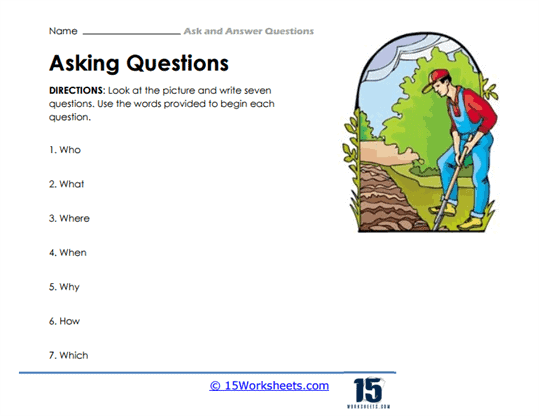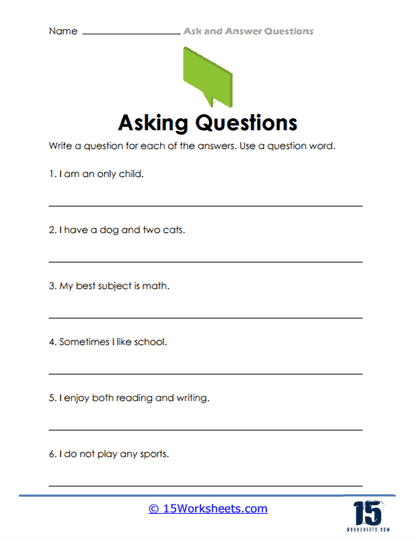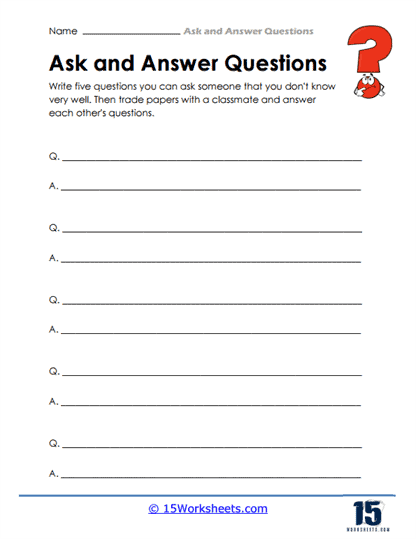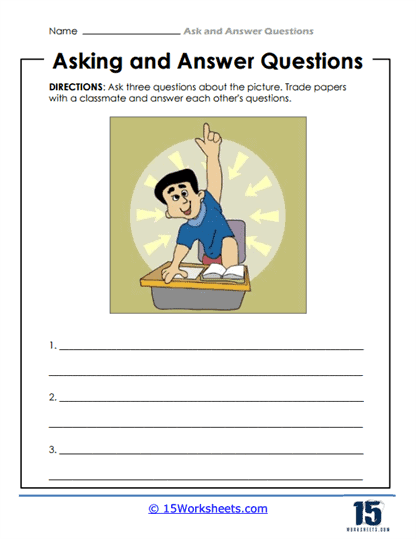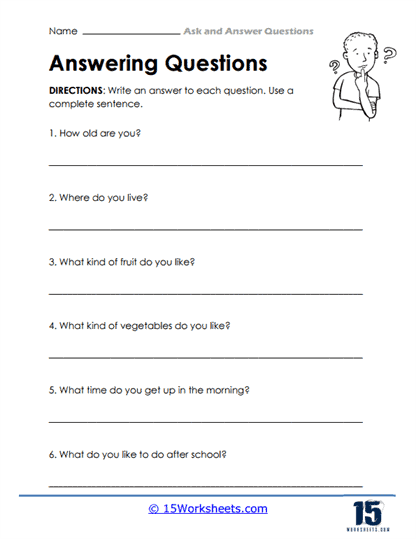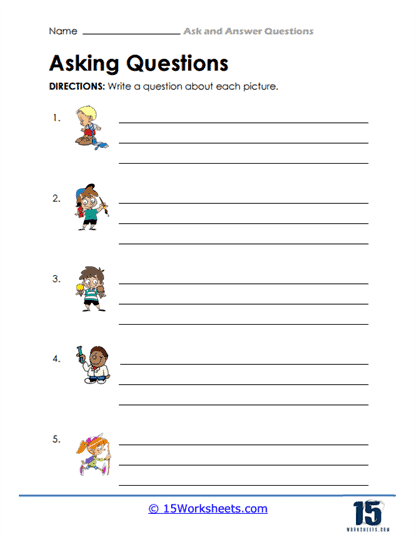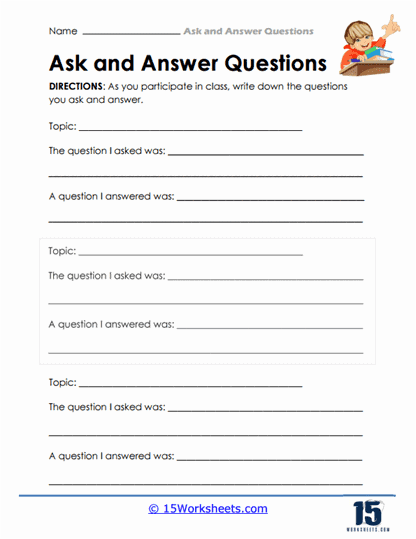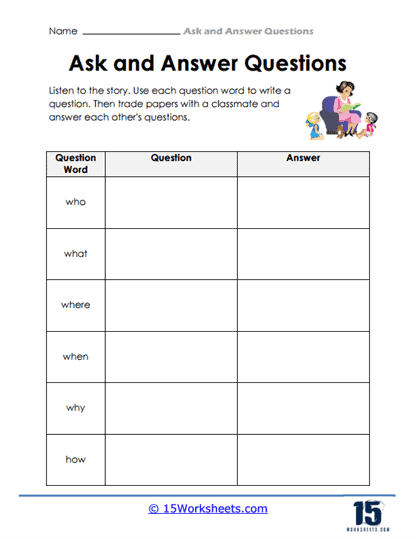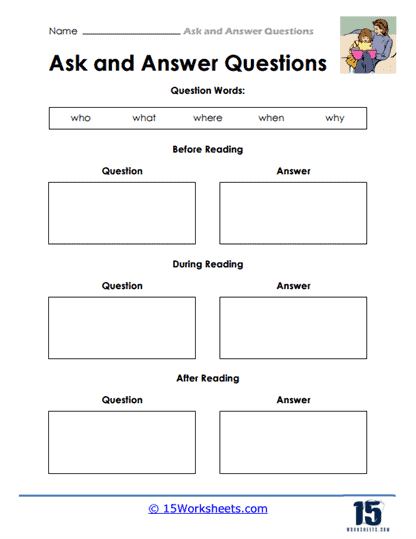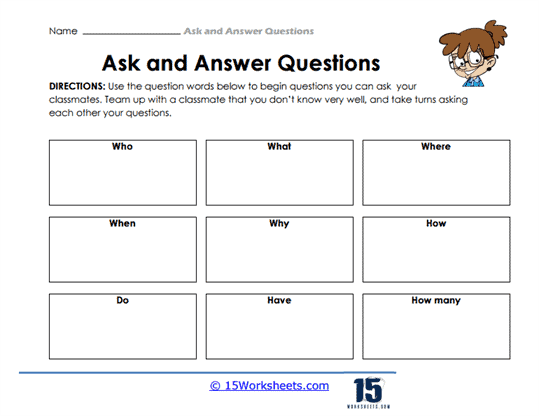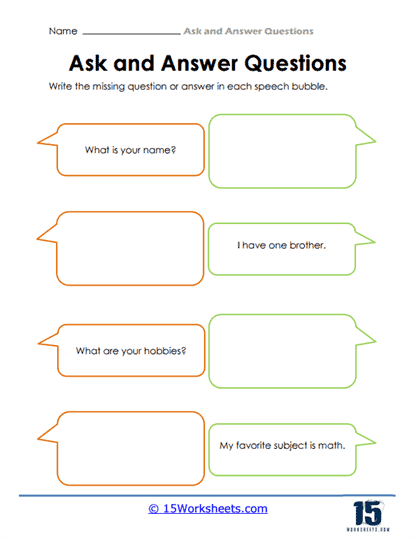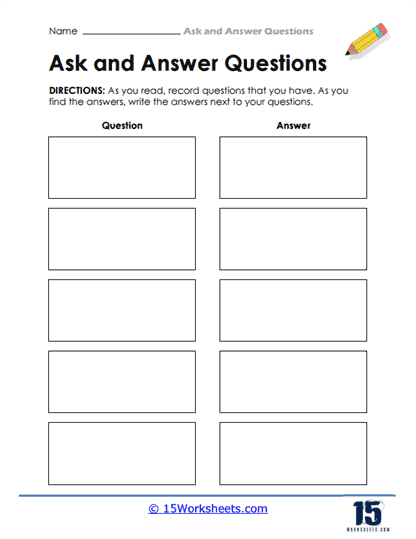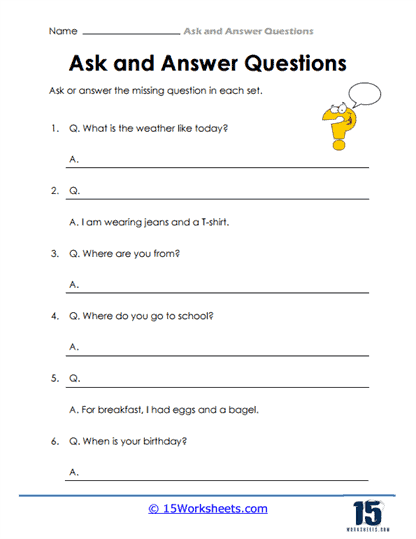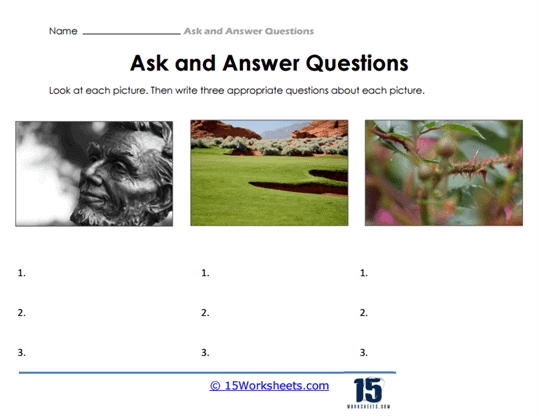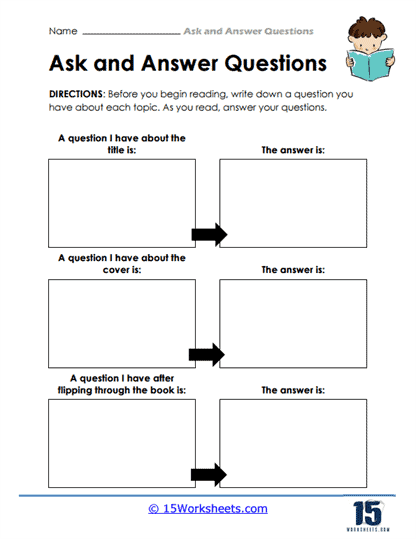Ask and Answer Questions Worksheets
All About These 15 Worksheets
In the realm of education, the ability to ask and answer questions is a fundamental skill that serves as a cornerstone for fostering critical thinking, effective communication, and deep understanding.
This collection of 15 meticulously crafted worksheets titled “Ask and Answer Questions” is designed to empower students with the proficiency to formulate thoughtful questions and articulate well-structured responses. Through these worksheets, students embark on a transformative journey of intellectual growth, honing skills that extend far beyond the classroom.
Ask and answer questions is a skillset that transcends subjects and grade levels, with far-reaching implications in both academic and real-world contexts. It empowers students to cultivate an inquisitive mindset, encouraging them to explore concepts, analyze information, and engage in meaningful discourse.
The ability to ask thoughtful questions stimulates curiosity, while answering questions instills a sense of responsibility to share knowledge and insights.
This collection of worksheets addresses a critical gap in modern education, fostering a generation of learners equipped with the tools to navigate an information-driven world.
How To Get Better At Asking and Answering Questions
Getting better at asking and answering questions starts with awareness – recognizing the role these skills play in meaningful communication and learning. Many people ask questions without much thought or respond automatically without fully processing what was asked. To improve, one must become more intentional: notice how questions are framed, consider what kind of answers they prompt, and reflect on how your own questions and responses influence a conversation.
Improvement also comes through consistent practice. Try asking more open-ended questions in daily interactions – those that invite deeper thinking rather than quick replies. When answering, pause to gather your thoughts, speak clearly, and aim to connect your response to the question’s purpose. Over time, you’ll develop a more flexible, thoughtful approach to conversations. The key is to reflect often, learn from each exchange, and treat every question or answer not just as a task, but as an opportunity to understand and be understood.
Cultivating a Questioning Mindset in Everyday Interactions
To teach asking and answering questions, it’s important to foster a mindset of curiosity and mutual respect. Start by creating a culture where questions are not only welcomed but celebrated – where it’s understood that asking a question is a strength, not a weakness. This helps remove the fear of “not knowing” and encourages people to seek clarity and deeper understanding.
Then, integrate questioning into everyday experiences. During a conversation, pause and invite others to respond with their own questions or to reflect on what was just said. Encourage learners to explore different types of questions – factual, analytical, reflective – and to recognize how each serves a different purpose. Similarly, show them how to give meaningful answers by teaching them to listen first, think critically, and respond with clarity and purpose. When asking and answering become habits of thought rather than isolated skills, learners begin to carry these practices into all aspects of life – enriching both how they learn and how they connect with others.
Teaching Through Modeling, Scaffolding, and Practice
Teaching someone how to ask and answer questions effectively begins with modeling – showing what good questions and responses look like in real time. For instance, a teacher or mentor can think aloud during a discussion, posing open-ended questions and demonstrating how to build on answers with follow-ups or clarifications. This approach makes the thinking process visible and helps learners understand the “why” behind a well-formed question or thoughtful answer.
Next comes scaffolding: guiding learners with support as they try the skill for themselves. This might involve giving them sentence starters like “Why do you think…?” or “Can you explain how…?” to help frame their thoughts. Encouraging reflection after a conversation – asking “What worked well in that exchange?” or “How could that question have been stronger?” – deepens the learning. Over time, with repeated and intentional practice in a safe, supportive environment, learners build the confidence and awareness to apply these skills independently and adaptively in varied settings.
Strong questioning and answering skills are powerful tools for connection, insight, and growth. By applying these strategies and practicing regularly, you can enhance the quality of your conversations and deepen your understanding of the world around you.

